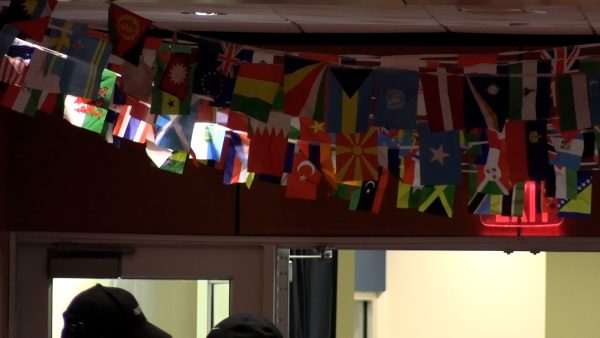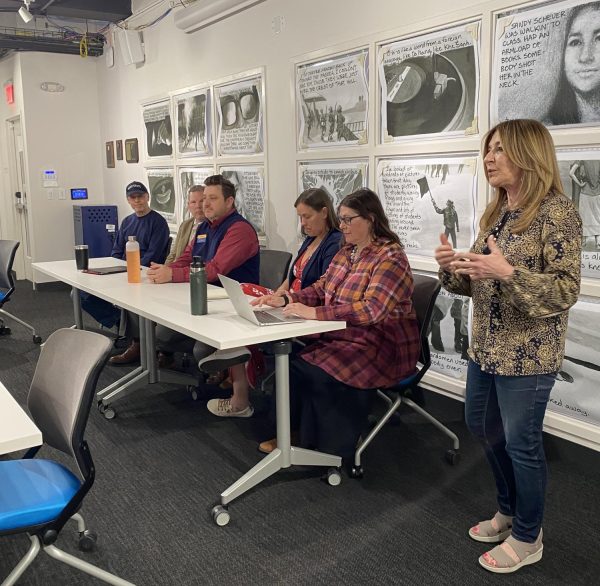Clocks to spring forward earlier – will computers be at risk?
February 8, 2007
SACRAMENTO, Calif. (MCT) — First there was Y2K. Then came the plagues of viruses and worms. Now computer experts must cope with an extra hour of sunshine.
On March 11 at 2 a.m., most of the nation will switch to daylight-saving time — three weeks sooner than normal, thanks to the Energy Policy Act of 2005.
While that additional hour may be good news for the winter-weary, the changeover could cause headaches for businesses and others who operate computer networks.
The issue isn’t nearly as complex as the Y2K problem seven years ago when computer experts feared havoc in systems not programmed to read the year 2000. But this year’s changeover has prompted warnings from analysts and spurred computer managers to assess their systems’ vulnerabilities.
Experts say most consumers have little to fear, other than perhaps a missed appointment because their electronic calendars aren’t reset to the correct time.
But businesses that haven’t addressed the issue could face problems.
“There is some potential for business disruption,” said Cameron Haight, an analyst for Gartner Inc. in Austin, Texas.
“It’s nothing like the Y2K event where you had to search through all your applications for date fields. … But anything that takes its time from an operating system will have some degree of risk.”
Most potential pitfalls aren’t enough to shut down a computer system, but could range from minor annoyances to major hassles.
If, for instance, banks don’t make the appropriate adjustments, ATM withdrawals or credit card payments might be recorded at the wrong time.
Brokerages might execute automatic stock trades at the wrong hour. Airline flight schedules could be affected, especially if foreign carriers don’t update their systems.
BlackBerry users could find their handhelds incorrectly sync with their calendars, causing missed appointments. Companies using Internet-based phone systems could find voice mails logging an incorrect time.
Mike Dillon, chief technology officer at Sacramento, Calif.-based Quest Technology, which installs and maintains computer systems, said as many as 100 of his clients face some glitches if the problem isn’t addressed.
“Not everyone is scheduling enough time to patch all their systems,” Dillon said. “A lot of people don’t like to put patches on their servers because it could cause other problems.”
According to Gartner, few companies have formal procedures to address the daylight-saving issue.
While businesses scramble to adjust, most consumer devices will be unaffected. Cell phones, for instance, continually get their clocks updated by the carriers’ wireless networks.
Computers using Windows XP SP2 and Apple’s OS-X operating systems should handle the time change smoothly as long as users have downloaded regular system updates. Users of older operating systems, however, may have to manually reset their clocks.
Microsoft spokesman Jim Desler said his company is issuing software updates for consumer and business users. One, to fix calendar issues in Microsoft Outlook, should be posted within a few weeks, he said. Information is posted at: www.microsoft.com/windows/timezone/dst2007.mspx.
There is some precedent indicating the early switchover won’t be catastrophic. In August 2000, parts of Australia shifted to daylight-saving time two months early to provide more daylight for the Sydney Summer Olympics. Haight said the only major fallout was a spate of missed appointments because electronic calendars didn’t sync to the new time.
The U.S. change this year is a little-noted consequence of sweeping congressional legislation in 2005 to improve energy efficiency, primarily through tax incentives and alternative energy projects.
In addition to arriving three weeks early, daylight-saving time will end a week later than usual, on the first Sunday in November.
Despite the advance warning, there appears to be little urgency in making the required computer changes. Perhaps that’s just human nature.
“I would be surprised if everyone got the work done,” said Quest’s Dillon. “About 20 percent will have been proactive, about 60 percent will have a mad scramble at the end, and about 20 percent won’t worry about it.”
























